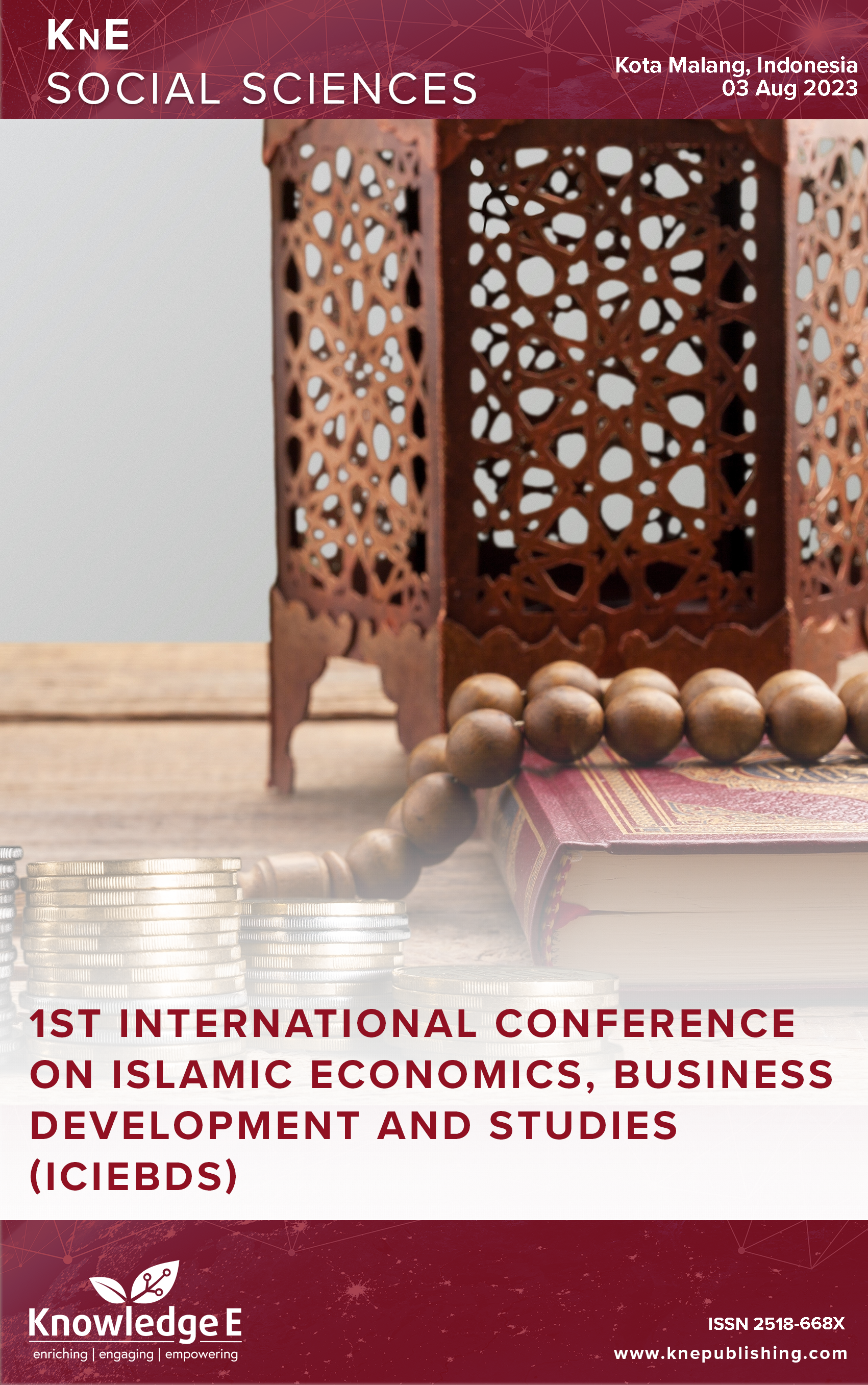Modeling Course for Open Distance Learning (ODL) in Artificial Intelligence e-Learning for Leadership and Business Success
DOI:
https://doi.org/10.18502/kss.v9i16.16269Abstract
Open distance learning is often associated with characteristics such as assertiveness, dominance, and competitiveness. This study investigates how interactive open distance learning can benefit students by helping them build stronger relationships with education providers, foster a more inclusive workplace culture, and improve overall team performance, thus helping education business survive. The results of this study could have important implications for open distance learning development programs and training, as well as for promoting diversity and inclusivity in education provider positions and sustain education business in the future. By understanding the relation between leadership style, gender, and authenticity, organizations could develop more effective open distance learning strategies and be viewed as more authentic and effective by their team members and public. ODL planning helps education providers work more efficiently and effectively, thus growing the organization.
Keywords: open distance learning, leadership, business planning
References
Abidin Z, Azliza N. Developing e-learning competencies for tertiary education. 2011.
Anthonysamy L. The use of metacognitive strategies for undisrupted online learning: Preparing university students in the age of pandemic. Educ Inf Technol. 2021;26(6):6881–99. DOI: https://doi.org/10.1007/s10639-021-10518-y
Brodie K. Teacher agency in professional learning communities. Prof Dev Educ. 2019;47(4):560–73. DOI: https://doi.org/10.1080/19415257.2019.1689523
Blasco D. Grounded theory research: Teaching for mastery in writing ability as a skill. Asian Journal of Contemporary Education. 2021;5(1):1–11. DOI: https://doi.org/10.18488/journal.137.2021.51.1.11
Glušac D, Radosav D, Karuović D, Juhas Ž. (2014) ”The views of students and teachers an implementation af e-learning in educational process,” 37th International Convention on Information and Communication Technology, Electronics and Microelectronics (MIPRO), Opatija, Croatia, 2014, pp. 879-882. DOI: https://doi.org/10.1109/MIPRO.2014.6859691
Laskaris D, Heretakis E, Kalogiannakis M, Ampartzaki M. Critical reflections on introducing e-learning within a blended education context. 2019. pp. 413–40. https://www.inderscienceonline.com/journal/ijtel DOI: https://doi.org/10.1504/IJTEL.2019.10020598
Joyce Agalo Integrating e-learning in teacher education Journal of Emerging Technologies (2021) ( JET) Volume 1, Issue 1 (2021)ISSN: 2710-0189 (Print) | 2710-0197 (Online) https://journals.jfppublishers.com/jet/ DOI: https://doi.org/10.57040/jet.v1i1.70
Kołodziejczak B, Roszak M. ICT competencies for academic elearning. In: Kostolányová K, editor. Proceedings of the Information and Communication Technology in Education 2017 Conference. Ostrava, Czech Republic: University of Ostrava; 2017. pp. 8–16., Retrieved from https://konference.osu.cz/icte/dokumenty/2017/proceedingsICTE2017.pdf
Kołodziejczak B, Roszak M, Kowalewski W, Ren-Kurc A, Bręborowicz A. Participants academic distance education - case study. Technics, Technologies, Education Management. 2015;10(2):242–9.
Kołodziejczak B, Roszak M, Kowalewski W, Ren-Kurc A. Educational Multimedia Materials in Academic Medical Training. Studies in Logic, Grammar and Rhetoric on Logical. Statistical and Computer Methods in Medicine. 2014;39(52):105–21. DOI: https://doi.org/10.2478/slgr-2014-0045
Repkova Stofkova K, Stofkova Z, Pitlova P. (2019) E-Learning As A Supportive Form Of Education At Universities, Edulearn19 Proceedings, pp. 6879-6885. DOI: https://doi.org/10.21125/edulearn.2019.1649
Kurilovas E. On data-driven decision-making for quality education. Comput Human Behav. 2020;107:105774. DOI: https://doi.org/10.1016/j.chb.2018.11.003
Kurt DS. (2018) ADDIE Model, Instructional Design. Educational Technology. https://educationaltechnology.net/the-addie-model-instructional-design/
Mohammad Sadegh RezaeiHossein Bobarshad Kambiz Badie,(2019),Toward enhancing collaborative learning groups formation in Q&A website using tag-based next questions predictor. Vol. 11, No. 4, pp 441–462. https://www.inderscienceonline.com/doi/10.1504/IJTEL.2019.102570 DOI: https://doi.org/10.1504/IJTEL.2019.102570
Malik N. Knowledge, attitudes and practices of female college students regarding environment. Nurture. 2020;14(1):18–22. DOI: https://doi.org/10.55951/nurture.v14i1.11
Malm B. On the complexities of educating student teachers: teacher educators’ views on contemporary challenges to their profession. J Educ Teach. 2020;46(3):351–64. DOI: https://doi.org/10.1080/02607476.2020.1739514
Moon PJ, Kong HS. Effects of fire fight safety education when applied metaverse in Korea: focusing on the construction industry. J Educ Elearn Res. 2023;10(3):344–51. DOI: https://doi.org/10.20448/jeelr.v10i3.4636
Mona TM. The Effectiveness of the Problem-Solving Strategy in Enhancing the Academic Achievement of Islamic Studies Students at a Saudi College. J Educ Elearn Res. 2022;9(3):129–35. DOI: https://doi.org/10.20448/jeelr.v9i3.4101
Qanay G, Frost D. The teacher leadership in Kazakhstan initiative: professional learning and leadership. Prof Dev Educ. 2022;48(3):411–25. DOI: https://doi.org/10.1080/19415257.2020.1850507
Rahyasih Y, Wijaya WM, Syarifah LS. Exploring vocational students’ satisfaction with online learning. J Educ Elearn Res. 2023;10(3):352–7. DOI: https://doi.org/10.20448/jeelr.v10i3.4668
Szelei N, Tinoca L, Pinho AS. Professional development for cultural diversity: the challenges of teacher learning in context. Prof Dev Educ. 2020;46(5):780–96. DOI: https://doi.org/10.1080/19415257.2019.1642233
Traifeh H, Meinel C. (2018), Design Thinking: A proposed Framework for transforming Higher Education in the Arab World, CEID Annual Conference 2018:Education and International Development. UCL Institute of Education, London.
Van Der Vlies R. (2020). Digital strategies in education across OECD countries: Exploring education policies on digital technologies. Retrieved from OECD Education Working Papers, No. 226, OECD Publishing, Paris.
Whitburn LY, Colasante M, McGowan H, Hughes DL, McDonald AC, Green RA, et al. Team-taught vssole-taught anatomy practical classes: enhancing the student learning experience. J Univ Teach Learn Pract. 2021;18(3):1–22. DOI: https://doi.org/10.53761/1.18.3.4

